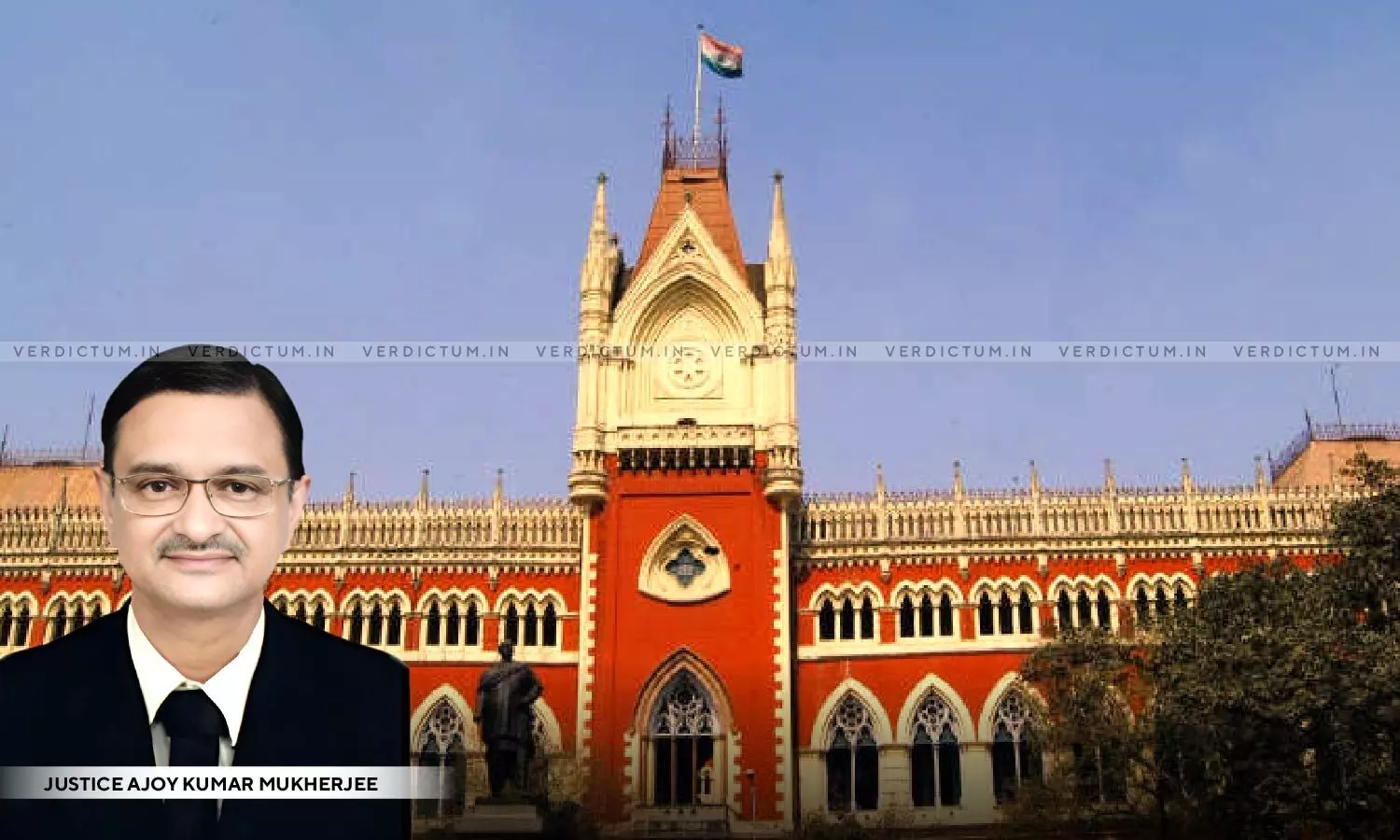
Justice Dr. Ajoy Kumar Mukherjee, Calcutta High Court
Mere Workplace Harassment Does Not Attract Offence U/S. 509 IPC: Calcutta High Court
 |
|The complainant accused the petitioner of workplace harassment, leading to a chargesheet under Section 509 IPC.
The Calcutta High Court has ruled that mere allegations of harassment or abuse at the workplace do not, by themselves, fulfill the legal requirements to constitute an offence under Section 509 of the Indian Penal Code (IPC), which deals with outraging the modesty of a woman.
The case involved a First Information Report (FIR) filed by the complainant (referred to as opposite party no.2), accusing four individuals including the petitioner of offences under Sections 354 and 114 of the IPC, for allegedly harassing her at her workplace. Following an investigation, the police submitted a chargesheet under Section 509 IPC, relating to an act intended to insult the modesty of a woman.
A Bench of Justice Dr. Ajoy Kumar Mukherjee, "At the cost of repetitions I am constrained to say that even the complaint does not disclose that the petitioner abused her, it only refers the word harassment. In the statement recorded under section 164 of the Cr.P.C, the de facto complaint had only alleged of abusing her that too without detailing the mode and manner of such abuse. Mere harassment at workplace or abusing her at workplace per se may not constitute an offence under section 509 of IPC, unless essential ingredients are fulfilled."
The complainant also filed a separate complaint with her former employer’s Internal Complaints Committee (ICC) under the Sexual Harassment of Women at Workplace (Prevention, Prohibition and Redressal) Act, 2013. Although the complaint was time-barred, the ICC proceeded with the inquiry and ultimately exonerated the petitioner of all charges.
The Court, upon reviewing the statements recorded under Section 164 CrPC, noted that even those statements failed to describe how the petitioner’s actions amounted to outraging the complainant’s modesty.
It was further emphasized that to invoke Section 509, the alleged conduct must clearly demonstrate an intent to insult the modesty of a particular woman. This includes specific acts such as making offensive sounds or gestures, or exhibiting objects with the purpose of causing insult. The Court noted, "Neither in the FIR nor in the materials collected during investigation, including the statements recorded under section 161 of Cr.P.C, there is any allegation of making any sound or gesture or exhibiting any object. On the contrary some of the witnesses, who were examined under section 161 of the Cr.P.C have stated before the police that though the petitioner used to create pressure for more work to the officials, but they never find him to misbehave either with the complainant or with other staff."
Moreover, the Court recognized that criminal liability and departmental proceedings operate on different standards of proof. While the internal committee’s exoneration of the petitioner may not automatically bar criminal proceedings, the standard of proof in a criminal case is significantly higher. In this instance, both the ICC and the investigation failed to uncover sufficient evidence that could support a prosecution under Section 509 IPC.
The Court said, "In the instant case there appears to be no material to establish the intention and knowledge of the petitioner to insult the modesty of the complainant nor any act of petitioner has been described to establish that the petitioner intended to shock the sense of decency of the complainant, being a women."
The Court held that the proceedings against the petitioner amounted to an abuse of the process of law and therefore quashed the case.
Cause Title: X v. The State of West Bengal & Anr.
Appearance:
Petitioner: Senior Advocate Ayan Bhattacharjee and Advocate Zohaib Rauf
Respondents: Advocates Prasenjit Mukherjee, Saptarshi Chkarborty, Rajdeep Bosu, Debasish Roy, Sreyashee Biswas, Puja Goswami